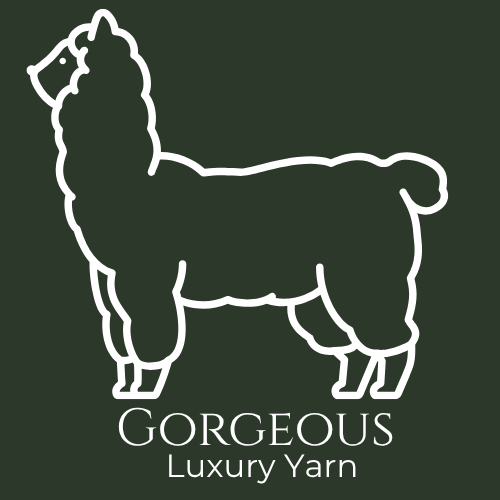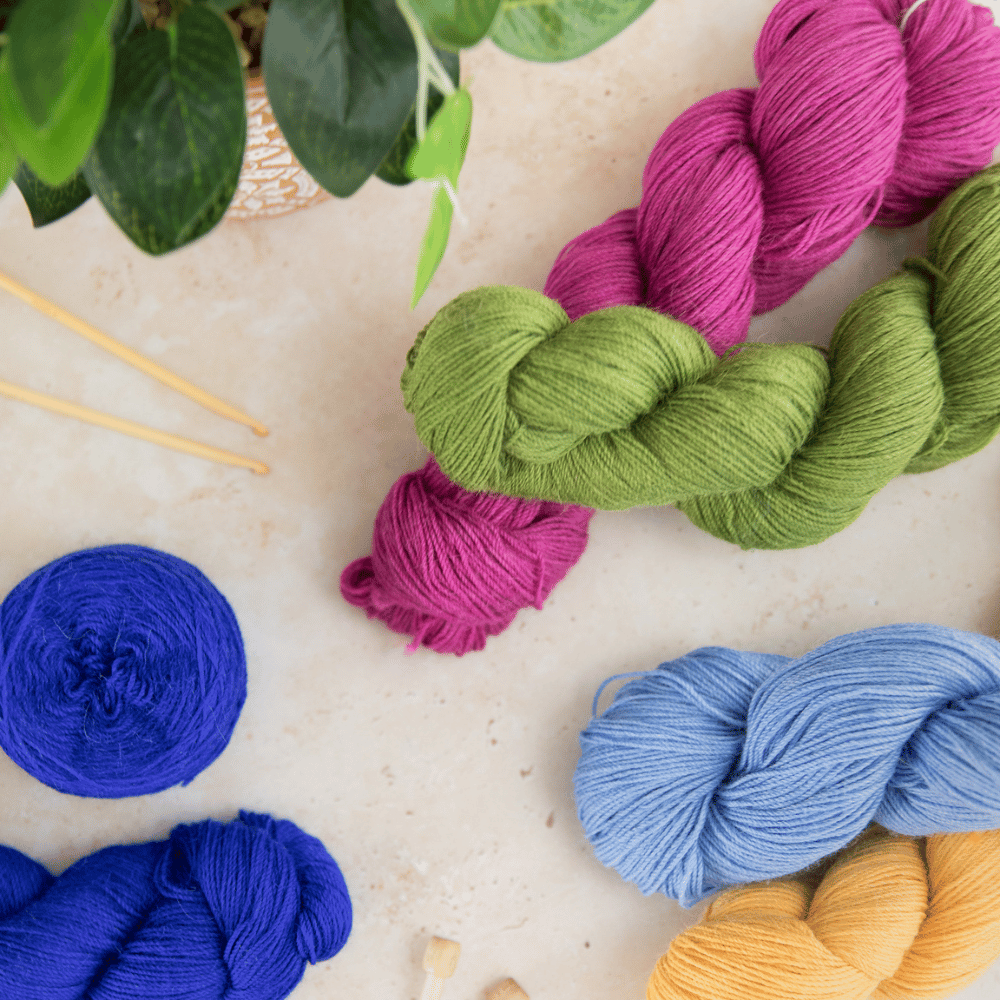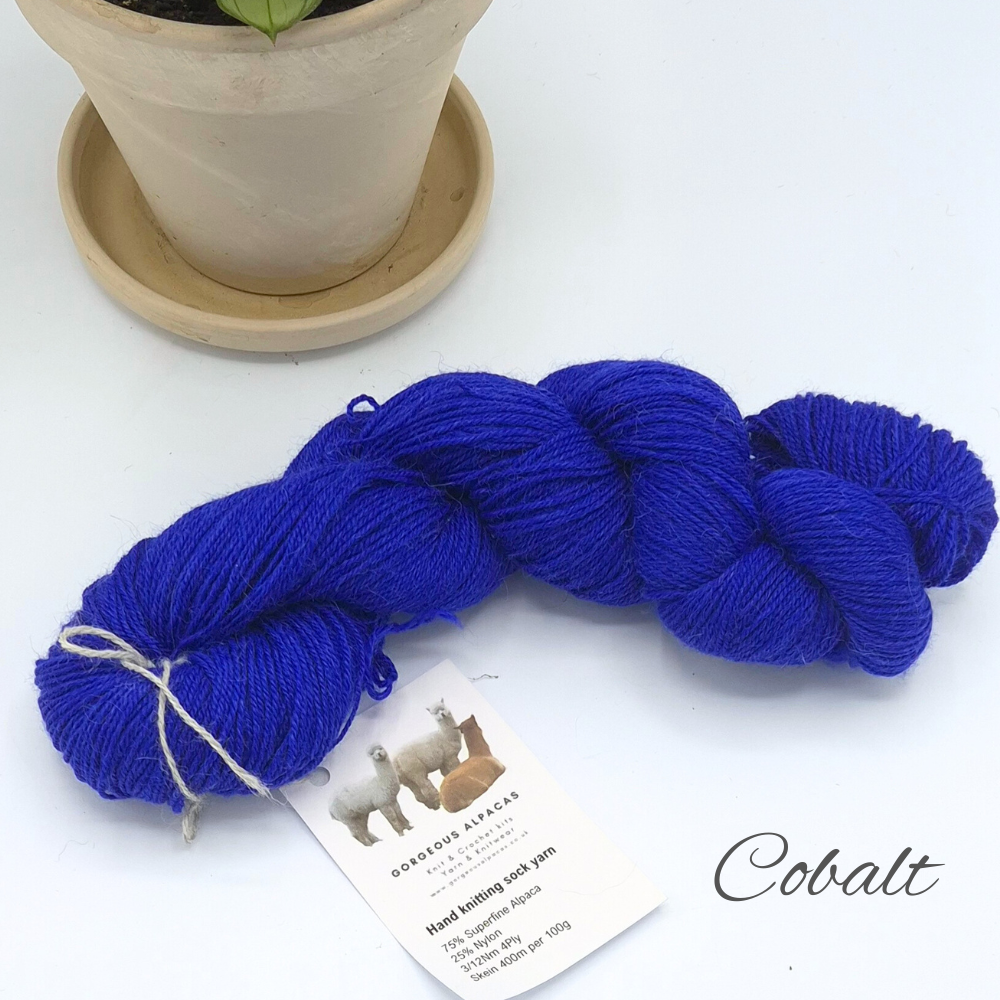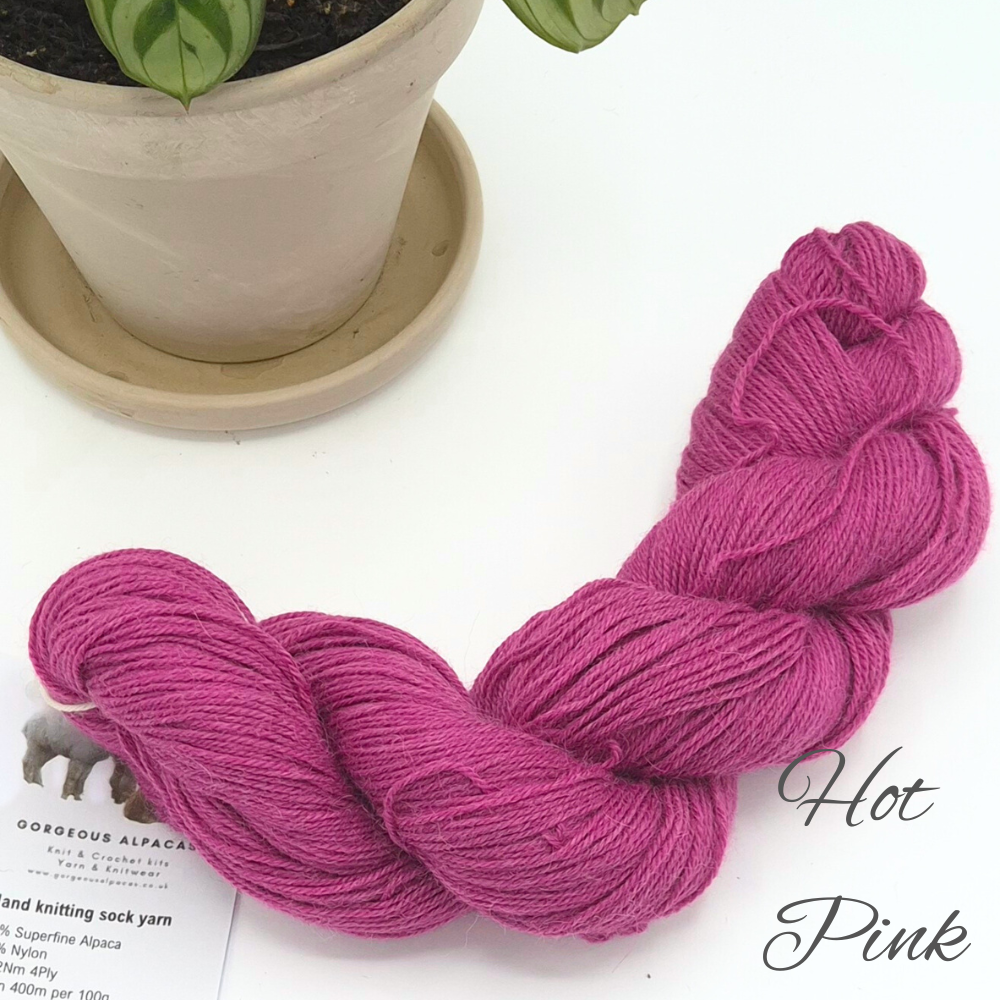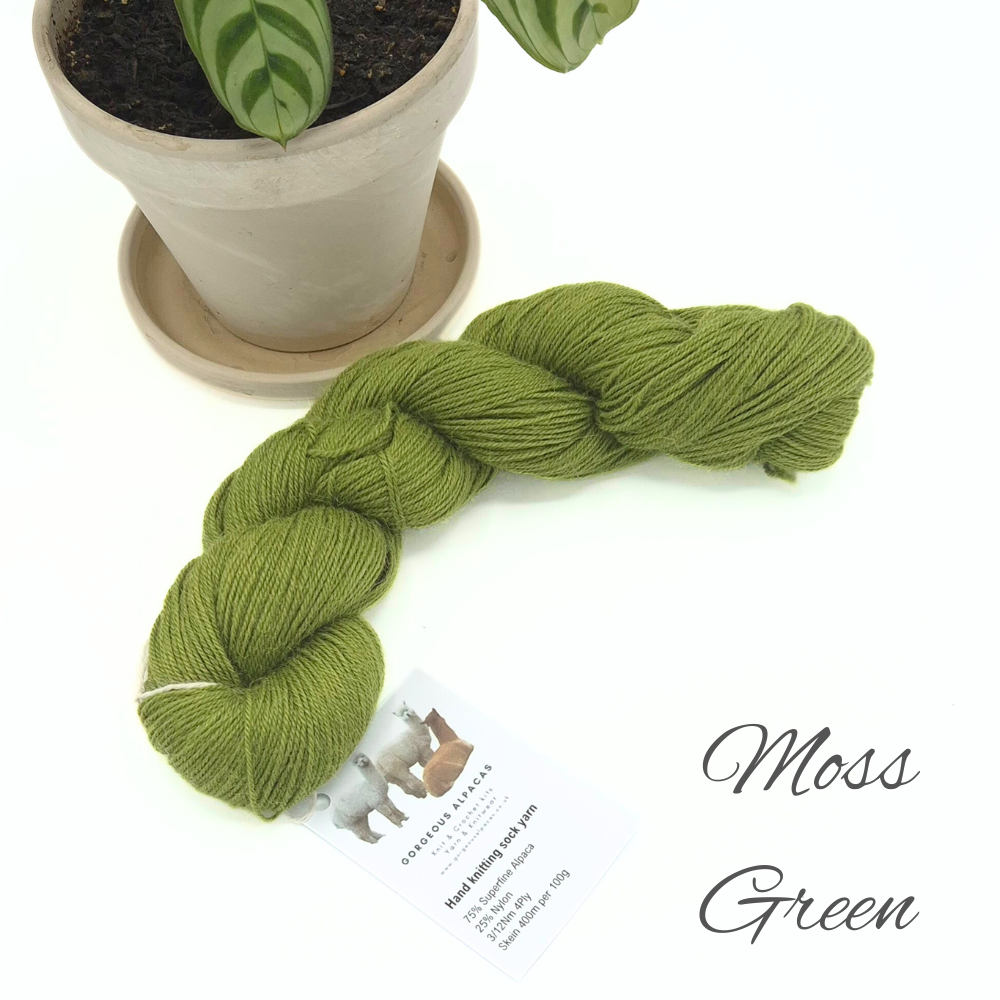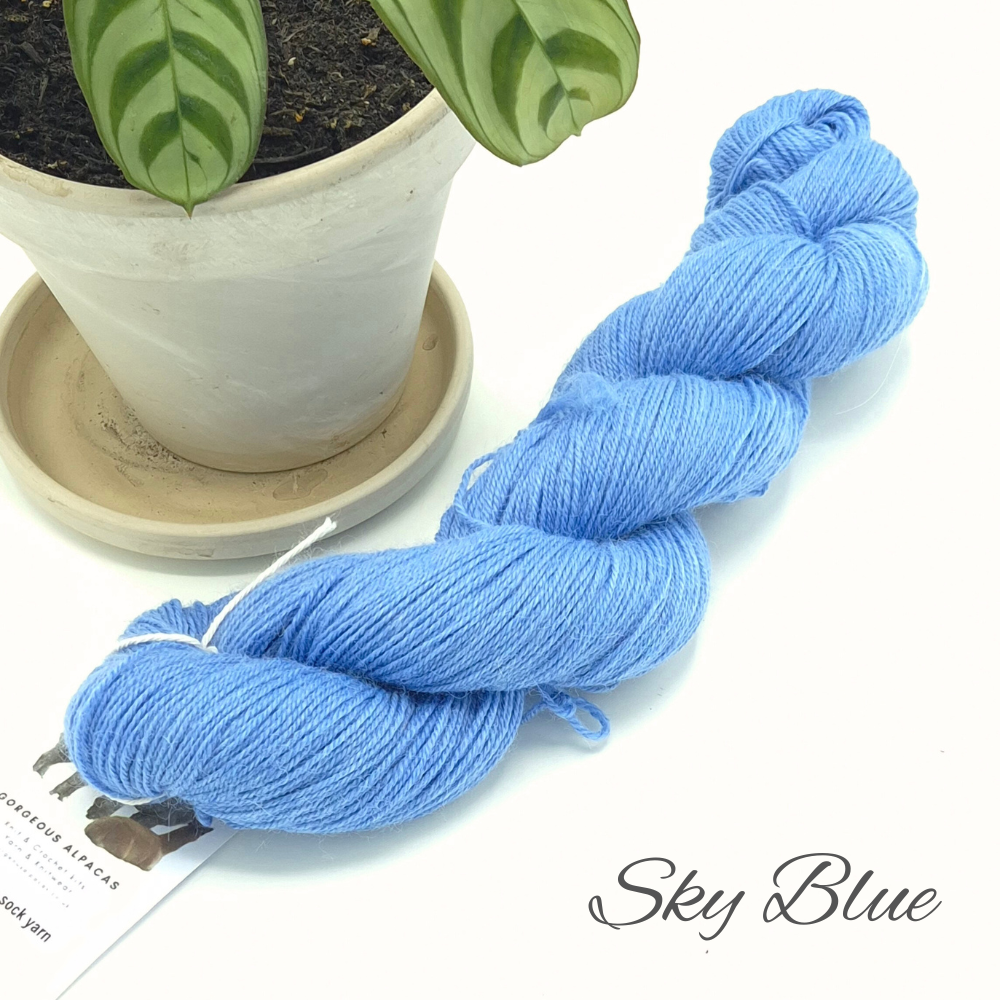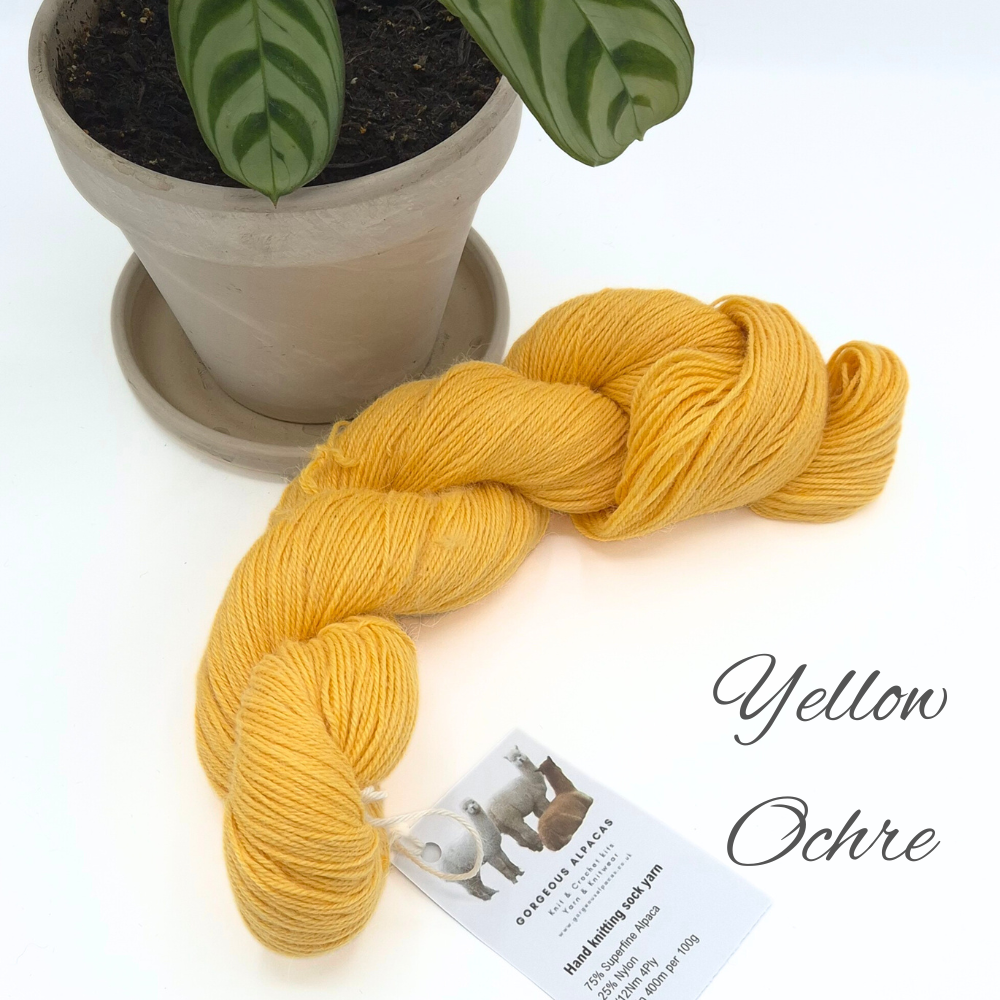Alpaca Sock Yarn
Alpaca Sock Yarn
Addons
-
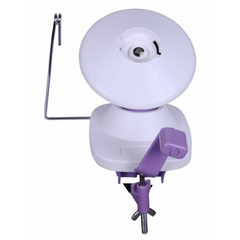
KnitPro Ball Winder
Regular price £35.50Sale price £35.50 Regular priceUnit price / per -
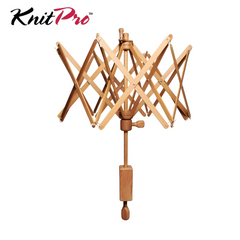
KnitPro Swift / Skein Winder
Regular price £55.00Sale price £55.00 Regular priceUnit price / per -
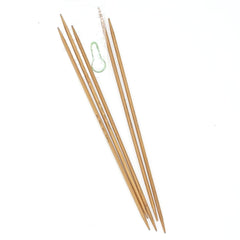
Clover Bamboo Double Pointed Needles - 2.5mm x 16cm - set of 5
Regular price £7.00Sale price £7.00 Regular priceUnit price / per£7.50 -
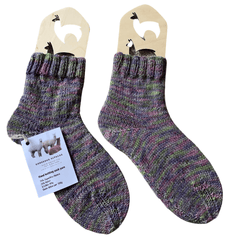
Restful 2-Needle Socks – Easy Knit Kit
Regular price £30.00Sale price £30.00 Regular priceUnit price / per -
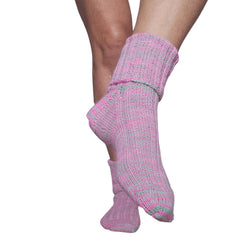
Knit Kit - Country Ribbed Socks
Regular price £28.00Sale price £28.00 Regular priceUnit price / per -
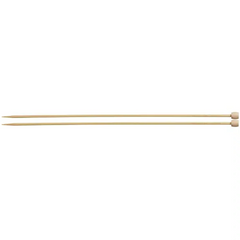
Clover Bamboo Needles 3mm (US 2.5) X 23 cm
Regular price £7.00Sale price £7.00 Regular priceUnit price / per£7.50
Couldn't load pickup availability
 100% Secure payment
100% Secure payment
Free shipping on orders over £35
Returns accepted for 90 days
Shipped within 24 hours
Sourced from British and Irish alpaca farms.
We hope you love our lovely alpaca sock yarn/ It's gorgeous to knit and crochet with, with long lasting wearability because the small amount of nylon mixed in.
We have two beautiful hand-dyed options, which are slightly more expensive, which reflects the labour involved Note: these are now completely sold out. Check back next year after the shearing season).
We recommend 2.5mm or 3mm needles for this yarn.
| Weight of Yarn | #1, Superfine |
| Blend | 75% alpaca 25% nylon |
| Size: | 3/12 Nm 4Ply |
| Skein Size | 100g (450 m or 490 yards per 100g) |
| Tension | 29 sts x 38 rows over 10 cm x 10 cm using 2.5mm needles in stocking stitch; 28 sts over 10 cm using 2.5mm needles in 2x2 rib stitch. |
Care Instructions
Use lukewarm water and a specialist wool detergent. Hair conditioner in the final rinse will add extra softness. When washing and rinsing squeeze the garment rather than rubbing. Gently squeeze out excess water before rolling in a towel. Lay flat to dry.
Washing machines: Modern machines with delicate programme at 20C using a wool delicate detergent.
Need more information?
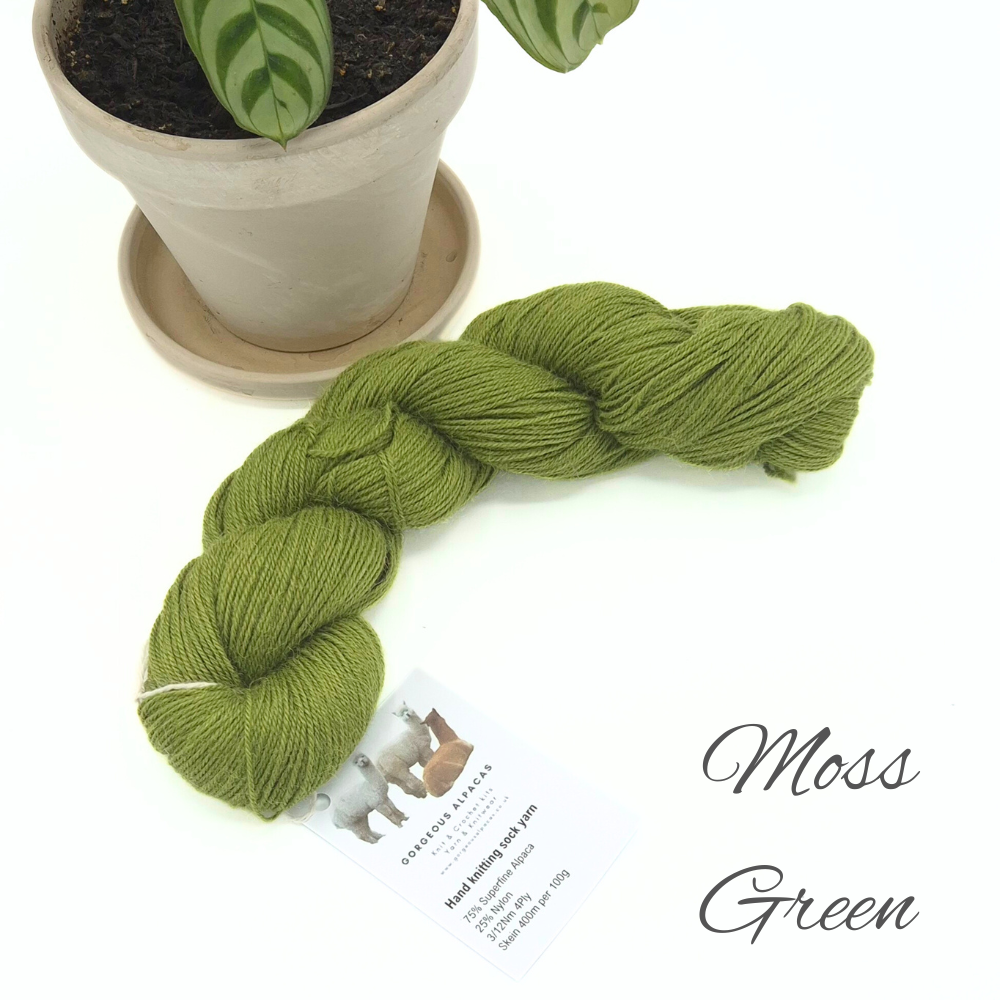
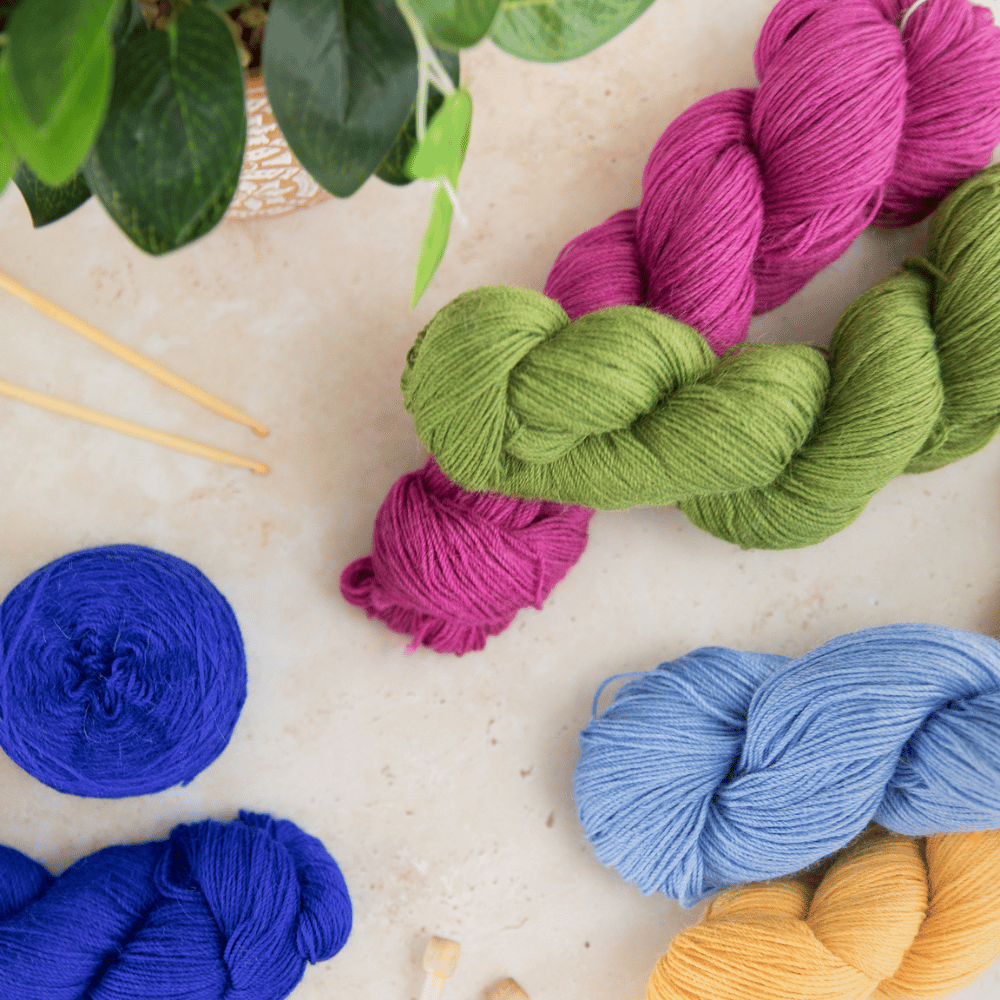
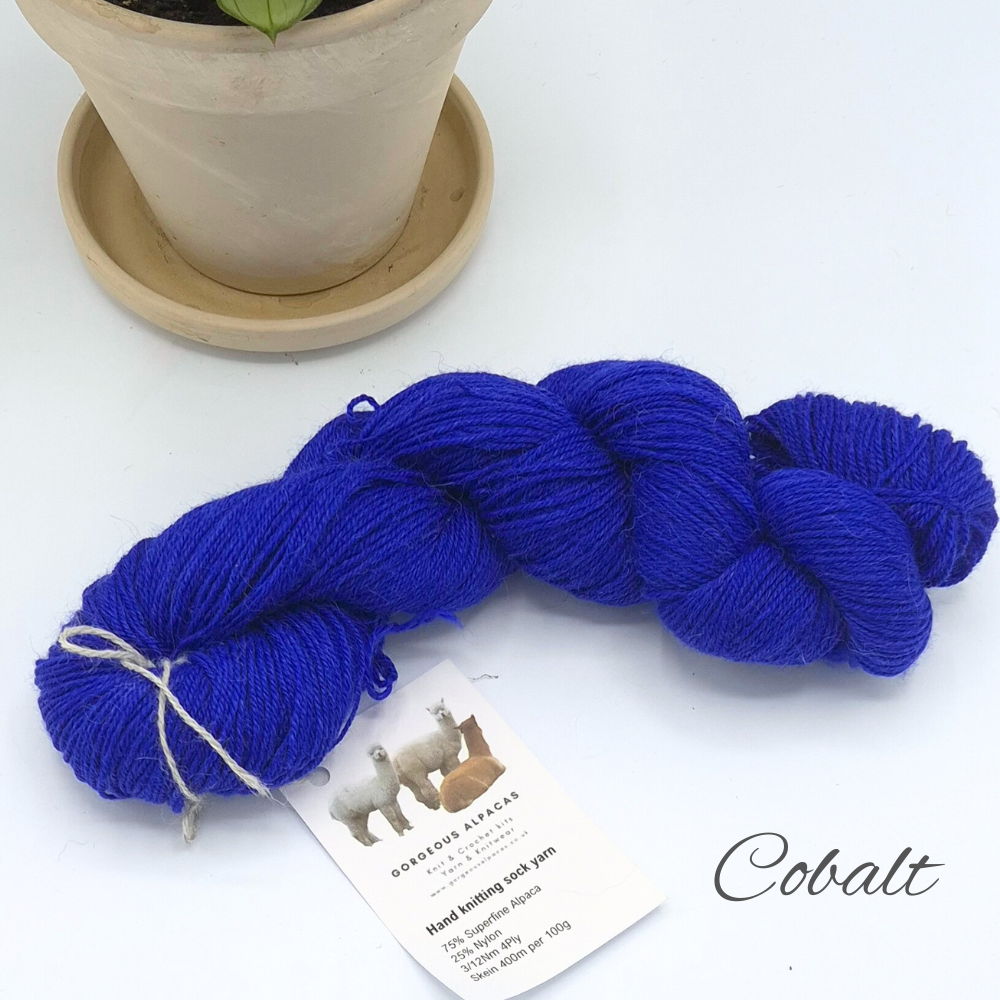
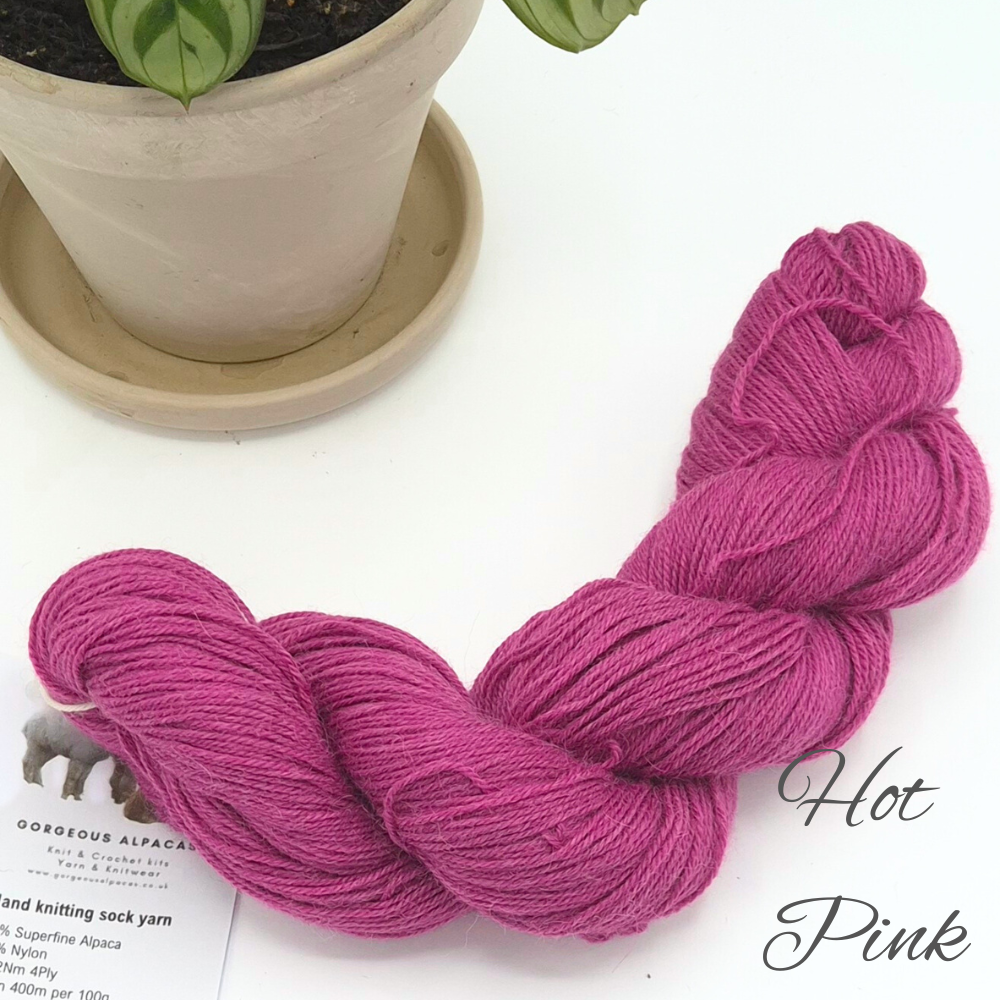
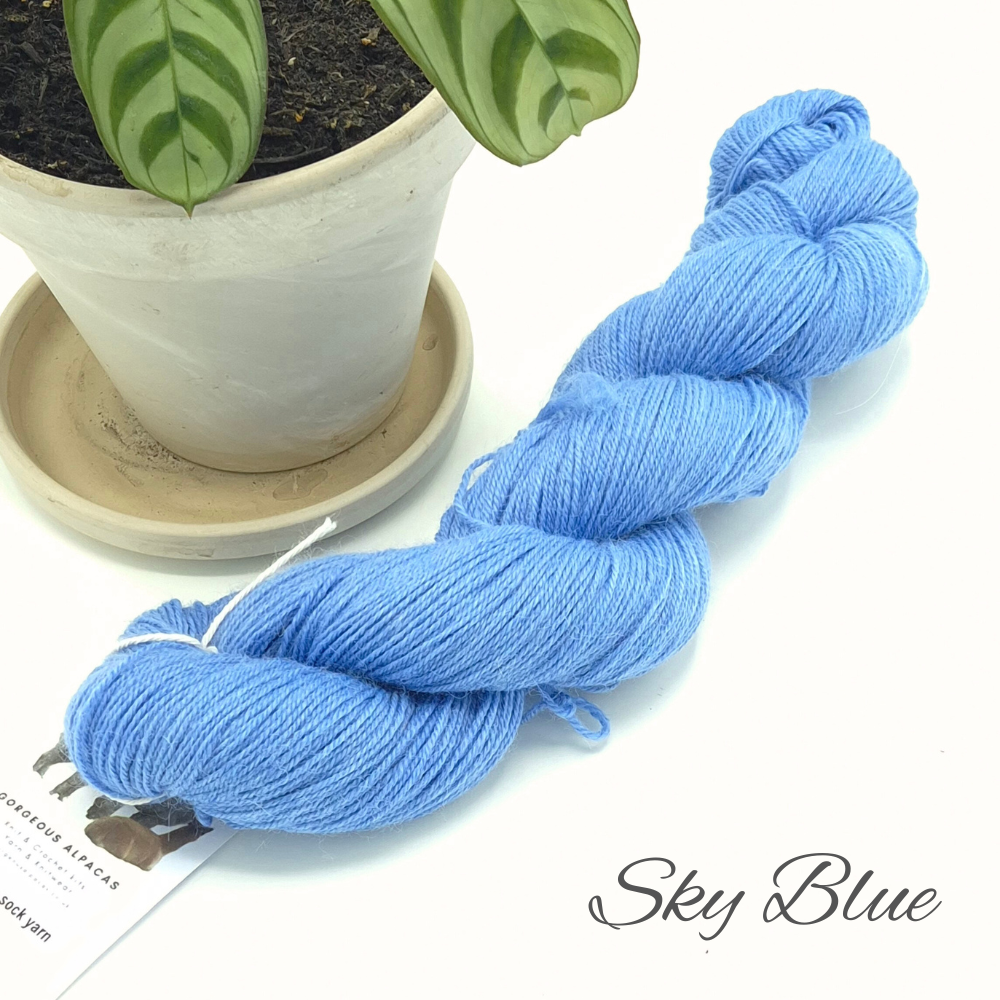
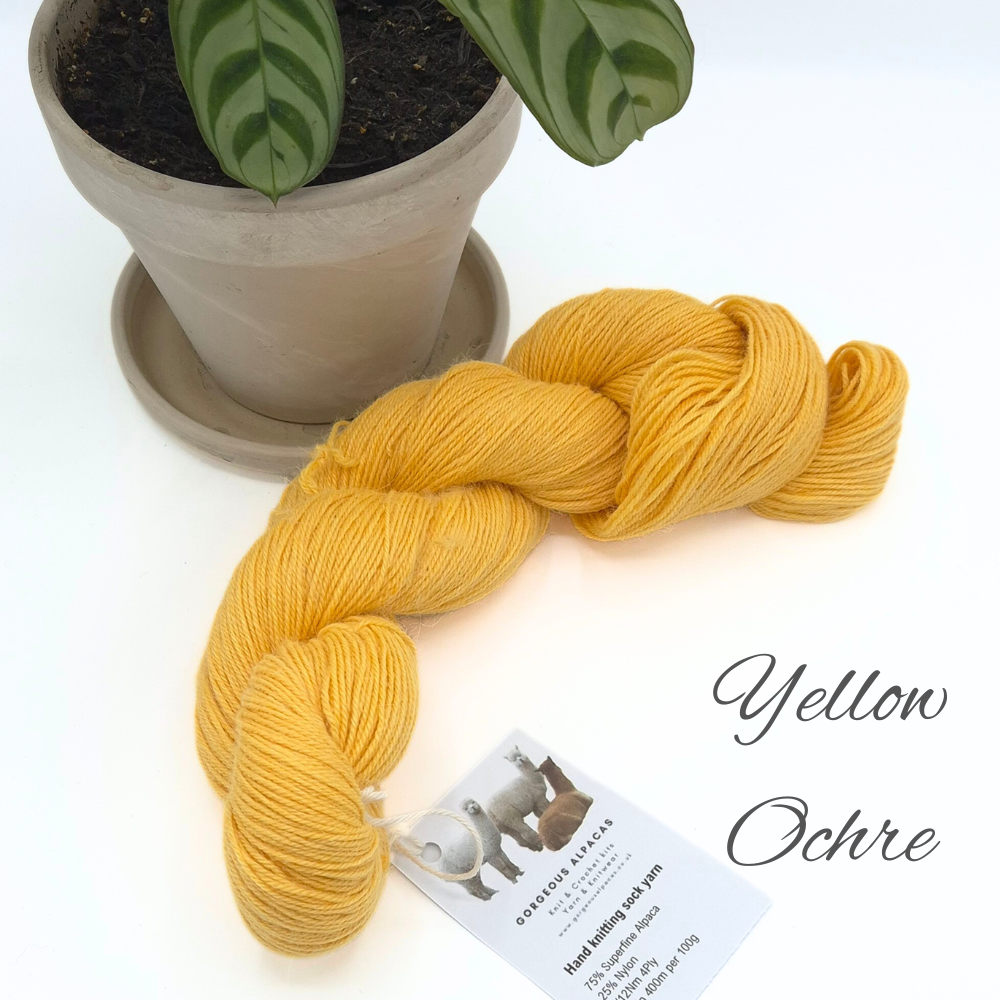
Biodegradable
Less Chemicals
Less Washing
Stain Resistant
No Ironing
Sustainable Alpaca
Water Repellent
Biodegradable
Less Chemicals
Less Washing
Stain Resistant
No Ironing
Sustainable Alpaca
Water Repellent
Biodegradable
Less Chemicals
Less Washing
Stain Resistant
No Ironing
Sustainable Alpaca
Water Repellent
Biodegradable
Less Chemicals
Less Washing
Stain Resistant
No Ironing
Sustainable Alpaca
Water Repellent
It’s a wonderful colour, feels great and I can’t wait to knit with it. I’ve a few more rows to knit to finish another project!
Sock yarn is lovely and soft and nice to knit with. This was the first time I’ve knitted socks - a present for my husband and he loves them. I used the gorgeous alpacas pattern and am I’m planning to do another pair for me this time!
Beautiful wool. Wonder service. I’ll definitely be buying again.
I’ll review when give had time to use it. Thank you.
Great service and arrived sooner than expected. Absolutely beautiful, soft alpaca yarn. Still stroking it but have plans for scarves, cowls etc.
Would definitely order again.
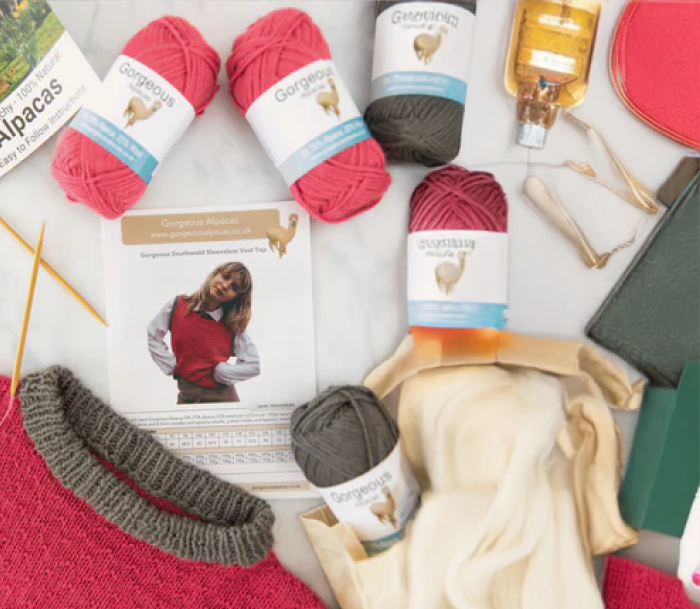
Pick your Pattern
Unlock Your Creative Potential with a great range of patterns matched with divine yarn in vibrant colours and How To videos for the stitches.
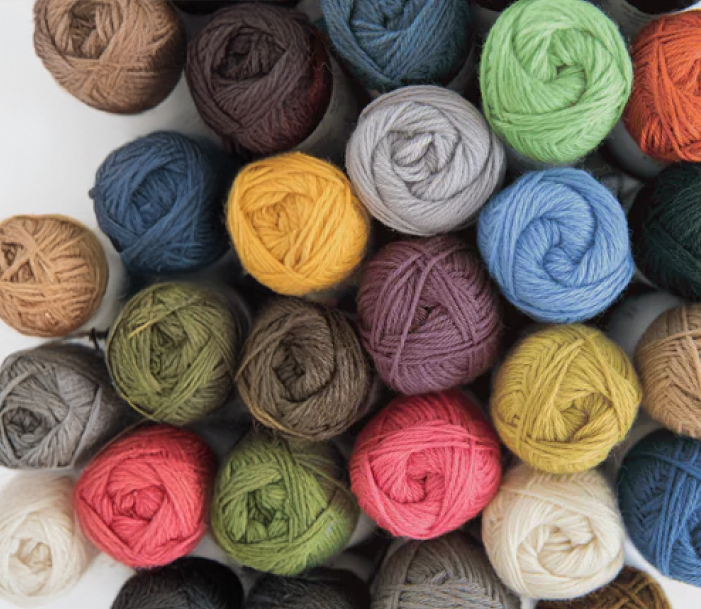
Choose your Colours
Unlock Your Creative Potential with a great range of patterns matched with divine yarn in vibrant colours and How To videos for the stitches.
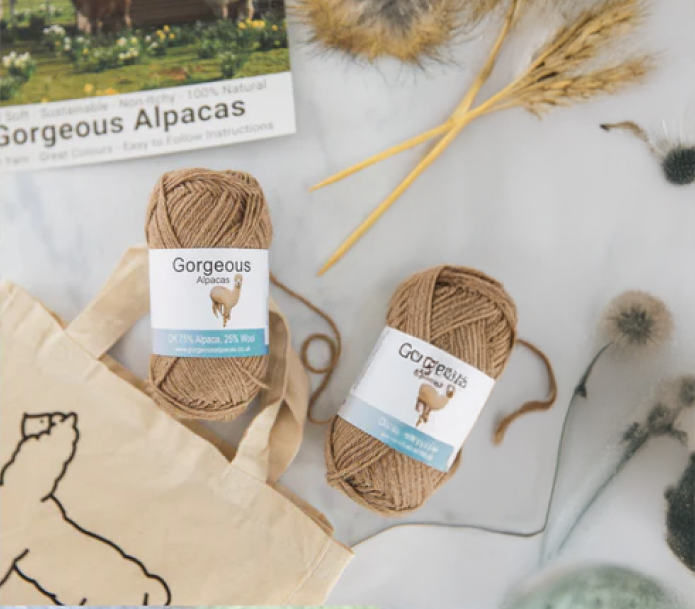
Receive your Kit
Unlock Your Creative Potential with a great range of patterns matched with divine yarn in vibrant colours and How To videos for the stitches.

Create your Unique Home Knit
Unlock Your Creative Potential with a great range of patterns matched with divine yarn in vibrant colours and How To videos for the stitches.
Frequently Asked Questions
Natural fibers are biodegradable and decompose naturally, unlike synthetic fibers, which take over 200 years to degrade. During this time, they contribute to landfill waste, release greenhouse gases, and leach toxic chemicals into the environment.
Alpaca material is stain-resistant, which means that it needs less washing and is less likely to get ruined by stains … and alpaca is stain-resistant without having chemicals and coatings added to it to make it so.
Sustainable Fashion Story
Alpaca yarn is naturally wrinkle-resistant, eliminating the need for ironing and reducing energy consumption. This helps lower carbon emissions, with ironing estimated to produce 190 kg of CO₂ per person annually.
Unlike sheep and goats, alpacas graze sustainably by trimming grass instead of uprooting it. This allows the grass to regrow naturally, preserving the soil and supporting healthy ecosystems.
